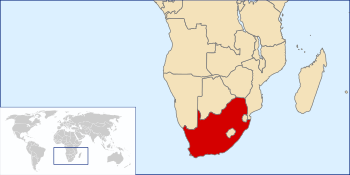United Nations Security Council Resolution 392
United Nations Security Council Resolution 392, adopted on June 19, 1976, after the killing of black youths by South African police in Soweto and other areas, the Council strongly condemned the South African government for its measures of repression against the African people. It also expressed its shock after the "callous shooting" of the protesters and sympathy with the victims, who were demonstrating against the policies of the National Party. The resolution also reaffirmed that "the policy of apartheid is a crime against the conscience and dignity of mankind and seriously disturbs international peace and security" which continued in defiance of Security Council and General Assembly resolutions.
| UN Security Council Resolution 392 | |
|---|---|
 Location of South Africa | |
| Date | 19 June 1976 |
| Meeting no. | 1,930 |
| Code | S/RES/392 (Document) |
| Subject | South Africa |
| Result | Adopted |
| Security Council composition | |
Permanent members | |
Non-permanent members | |
The meeting was called after Benin, Libya, Madagascar and Tanzania raised the issue in a letter to the Council. No details of the voting were given, other than that the resolution was "adopted by consensus".
Resolution 392, like others before it, reaffirmed the legitimate right of self-determination of the South African people.[1]
See also
- List of United Nations Security Council Resolutions 301 to 400 (1971–1976)
- South Africa under apartheid
- Soweto uprising
References
- Schweigman, David (2001). The authority of the Security Council under Chapter VII of the UN Charter: legal limits and the role of the International Court of Justice. Martinus Nijhoff Publishers. p. 54. ISBN 978-90-411-1641-3.
External links
| Wikisource has original text related to this article: |